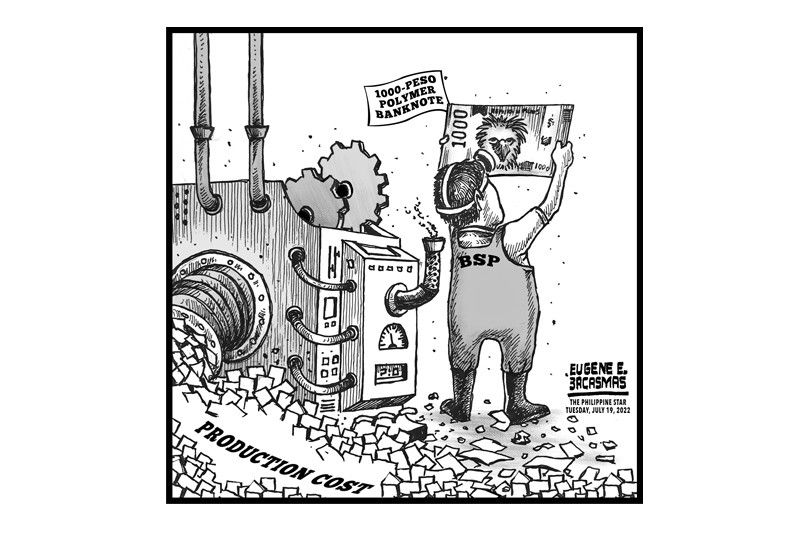EDITORIAL - Smarter, cleaner, stronger?

A presidential decree issued in 1963 makes it a criminal offense to deface or mutilate banknotes and coins. Fortunately, PD 247 is applied mainly to the deliberate damaging of the country’s currency. Otherwise, many Filipinos could end up with a criminal indictment for folding or rolling up banknotes in their pockets or small wallets, or crumpling the currency as the banknotes change hands in markets and public utility vehicles.
Apparently clueless about the way ordinary folks in this country handle money, the Bangko Sentral ng Pilipinas issued guidelines last month on handling the latest incarnation of the 1,000 peso bill – a polymer version supposedly with more security features than the predecessor made of abaca fiber – in an effort to “safeguard their integrity and prolong their lifespan.”
Among the proper handling guidelines, with the kicker “smarter, cleaner, and stronger”: “Do not excessively fold, crease, or crumple polymer banknotes. These could leave permanent fold marks.”
Complying with the guidelines, certain establishments initially rejected folded P1,000 bills, setting off a firestorm that got worse when the new central bank chief said people should just use longer wallets. The firestorm subsided only when the BSP issued an advisory that banks, retailers and other business establishments should accept even folded polymer banknotes.
But this is not the end of the controversy. A resolution has been filed in the Senate for an inquiry into the issuance of the “impractical” polymer banknote. Sen. Aquilino Pimentel III, who filed the resolution, wants production of the polymer bills suspended as the chamber looks into the circumstances behind the replacement of the abaca bills with polymer. He noted that this is detrimental to the country’s $97.1-million-a-year abaca industry.
Banknotes deteriorate over time and are regularly replaced. But currencies, apart from being legal tender, are national symbols, and any significant alteration particularly in design deserves wider consultation among various sectors.
Apart from the cost of producing new bills, Pimentel wants to know who else or which other agencies are consulted in any redesign of the Philippine currency. In the new polymer banknote, the Philippine Eagle has replaced three heroes of the country’s resistance to the Japanese during World War II – Josefa Llanes Escoda, Vicente Lim and Jose Abad Santos.
With this controversy, the government should realize the importance of conducting a thorough study and sufficient consultation with stakeholders when tinkering with the nation’s currency.
- Latest
- Trending































